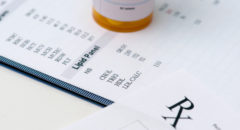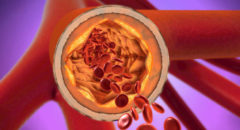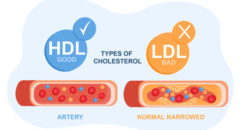
Yes, you know that exercise and eating healthy will help lower your cholesterol. But, let’s get to the nitty-gritty of what else helps you truly manage your cholesterol.
1. Know your number.
To know if your levels are normal, you need to have them checked on a regular basis. High cholesterol, linked to heart disease, is the number one cause of death in the U.S. It increases your risk for heart attack.
The sooner you know your levels, the more you can do to monitor this number to stay healthy. The American Heart Association recommends getting your cholesterol checked at least once every four to six years. If you are at a higher risk, get screenings more frequently.
RELATED: Tips For Lowering Your Cholesterol Level Easily
2. Educate yourself.
Do you know if you’re at high risk for heart disease? High cholesterol is only one risk factor. The National Heart, Lung and Blood Institute (NIH) also lists the following risk factors:
- High blood pressure
- Diabetes and prediabetes
- Smoking
- Being overweight or obese
- Being physically inactive
- Having a family history of early heart disease
- Age (55 or older for women)
Learn what your numbers – LDL (“bad” cholesterol) and HDL (“good” cholesterol) – mean. Also, work with your doctor to explore all of your treatment options, beyond eating healthy and exercising daily.
3. Know good versus bad fats.
There are good and bad fats. Avocados, olive and canola oil, fish high in omega-3s and most nuts are monounsaturated fat, which is good fat.
These fats can lower your LDL while raising HDL. Saturated fats found in animal and dairy products do the opposite and can








